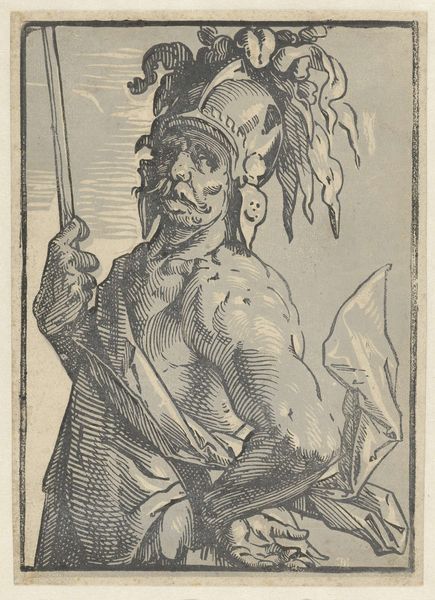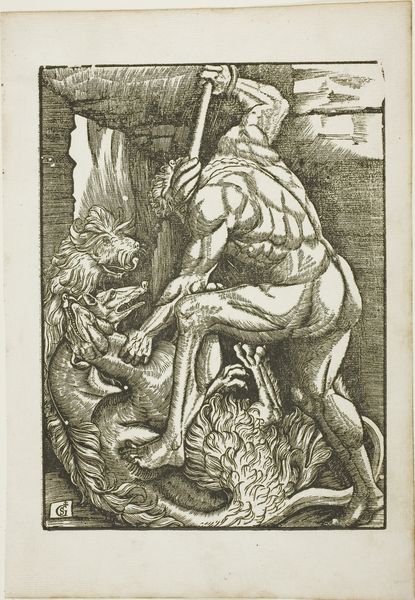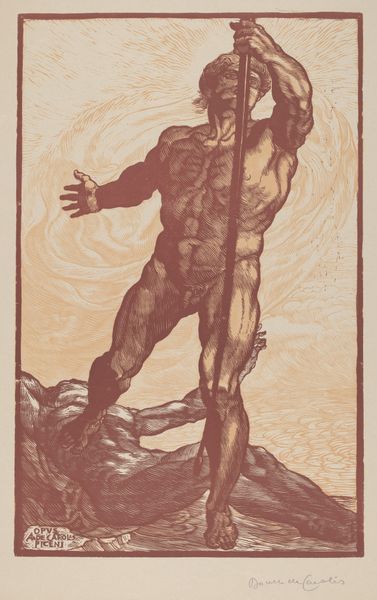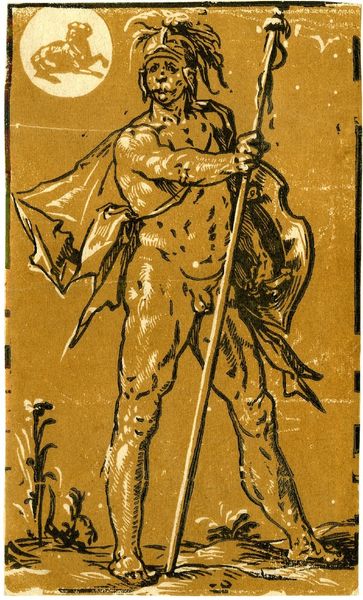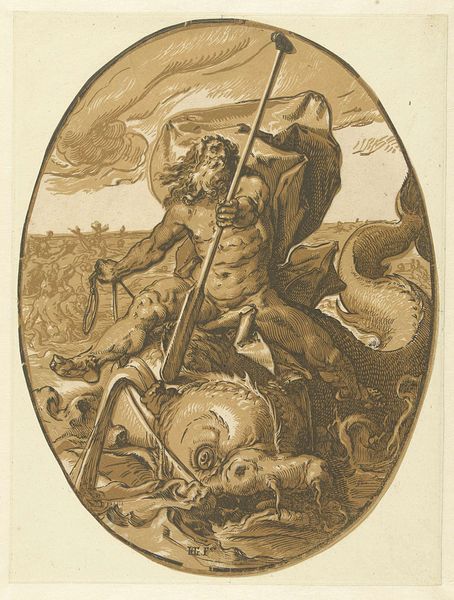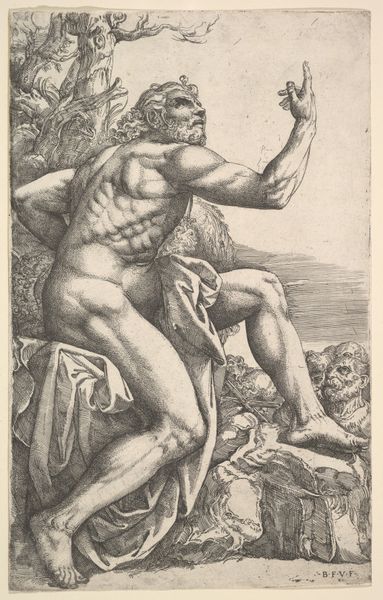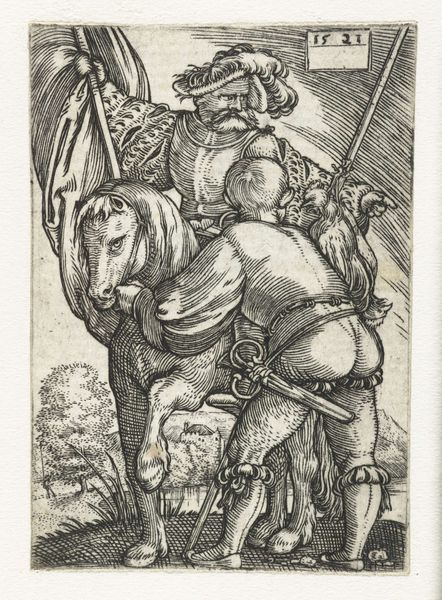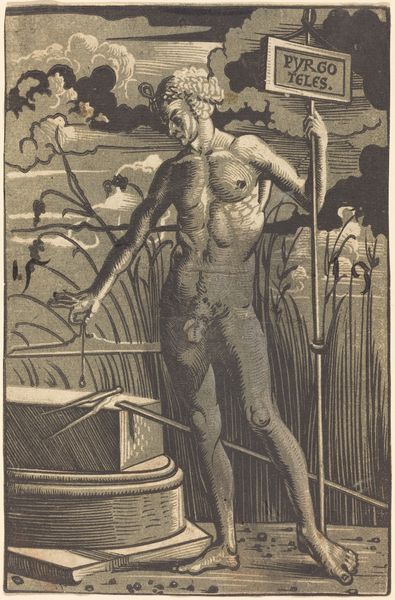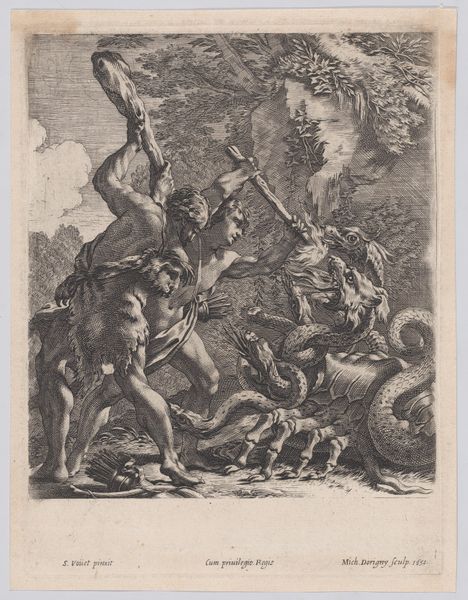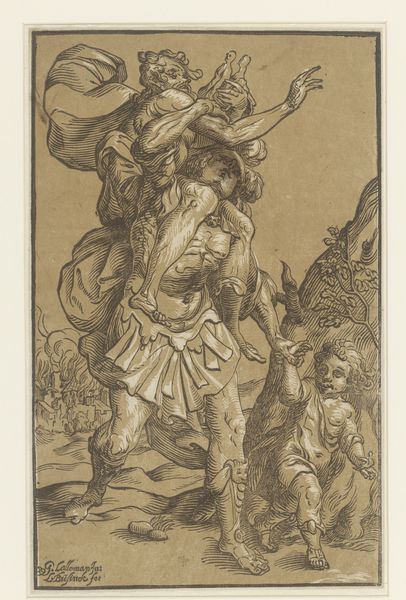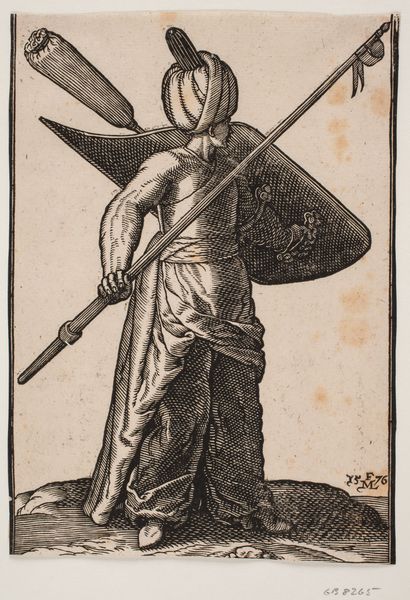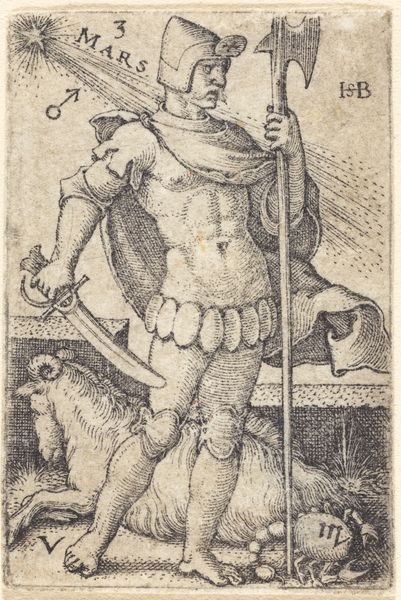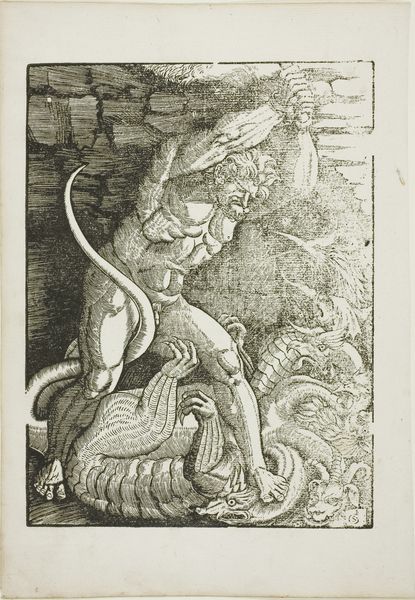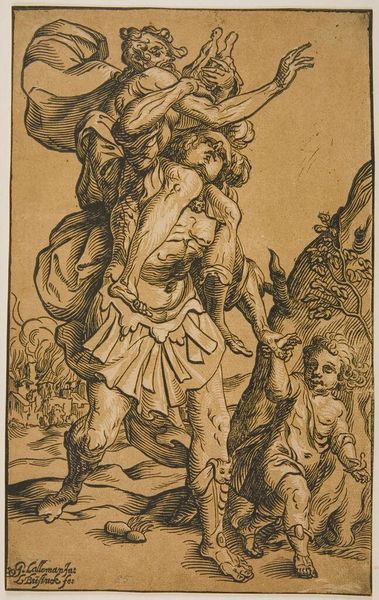
drawing, print, engraving
#
portrait
#
drawing
#
allegory
# print
#
caricature
#
mannerism
#
portrait drawing
#
history-painting
#
engraving
#
portrait art
Dimensions: height 247 mm, width 175 mm
Copyright: Rijks Museum: Open Domain
Editor: This is Hendrick Goltzius's "Mars," made between 1586 and 1590, a print now housed in the Rijksmuseum. He's rather… intense. I’m struck by his muscular build and the elaborate helmet, almost grotesque. What do you see in this piece, and what might it tell us about the cultural context of the time? Curator: The image vibrates with an inherited visual language. Mars, here, isn’t just a Roman god of war; he is the embodiment of martial ideology, made visible. The exaggerated musculature, the almost theatrical helmet – these are not simply decorative. Look closely – what do you notice about the plumes? Editor: They look like strange fingers or claws… almost skeletal? Curator: Precisely. These 'plumes' subtly allude to death, linking the glory of war with its grim reality. The Mannerist style heightens the emotional impact. What emotions are evoked for you? Editor: Definitely unease. It's like a celebration of strength that’s tainted by something morbid. The helmet, which should be glorious, hints at something darker. Curator: The artist is tapping into a complex cultural memory, presenting war as both a spectacle and a source of anxiety. He plays with the ambivalence of Mars - both a god of power and destruction. And it's not glorifying one element without showing a cost, with these little memento mori touches. What remains with you? Editor: That symbols aren't static. They shift meanings, echoing through different eras and contexts, changing our understanding. Even what looks heroic could hide anxieties underneath. Curator: Yes. The enduring power of symbols, continually reinterpreted, offering new insights with each encounter, remains potent.
Comments
No comments
Be the first to comment and join the conversation on the ultimate creative platform.
